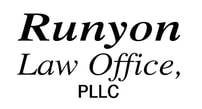Joint Tenants Take Note
So, sure, if one joint partner dies, then the assets held that way do miraculously end up owned by the survivor - and without need of legal help getting there. If the ownership stays that way, though, the survivor's estate is going to endure about a year of probate formalities, much to the undoubted chagrin of our offspring. That's because - as I've mentioned before - assets solely in a decedent's name at death generally need probate to get themselves into another name, whether there's a will or not. To make it even worse, let's say the survivor now also owns a condo in Ft. Myers or Phoenix, If no steps are taken, his or her estate will be probating itself both in New Hampshire and where that winter getaway is located. FYI, it recently cost $3,000 in probate fees just to get a solely-owned Florida condo into the kids' names - and all they wanted to do was sell it.
Joint ownership of assets also won't keep probate at bay if something happens to both owners at the same time. That's a pretty rare occurrence, I know, but one most of us in this area have experienced, tragically, not long ago. Under those circumstances, both estates require probate because there's no surviving owner.
What's the solution? The preferred one would be a revocable trust, with you as your own trustee, and with all your assets re-titled in that name. A couple would likely do fine with one joint trust these days. Of course, you can take that other, riskier road of keeping those assets in joint ownership until the first partner's passing, but then you've got to make sure the survivor funds the same kind of trust before the second shoe drops.
The positive spin on all this is that if you make good on your resolve to tidy up your planning, the decrease in stress may also add years to your life expectancy.
Posted 01/07/2014 Estate Planning
